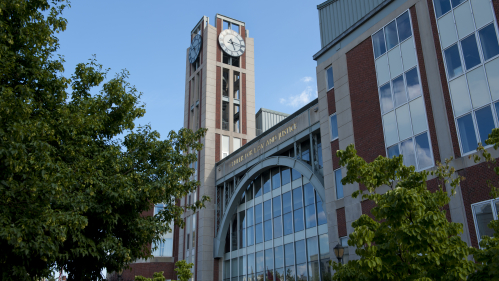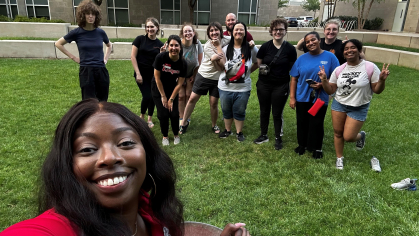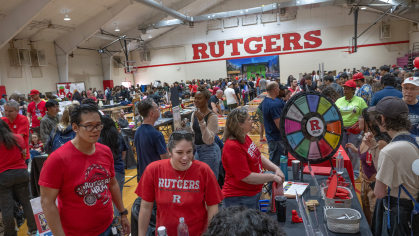Law School Team Challenges Felony Disenfranchisement Laws

A Rutgers Law School team filed a milestone brief to overturn laws in 48 states that prevent citizens with felony convictions from voting, arguing that such restrictions violate international human rights law.
The brief was filed in Washington, D.C., before the Inter-American Commission on Human Rights, which monitors the U.S. and other nations’ compliance with their human rights treaty obligations.
“The U.S. has continuously failed to take action against voting rights violations and we hope the commission will issue a ruling to fix this,’’ said Rutgers Law professor Penny Venetis, who leads the school’s International Human Rights Clinic in Newark. The clinic has partnered on the effort with the global law firm White & Case LLP.
Congress has been unable to pass much-needed voting rights legislation, including federal laws eliminating, or at least limiting, felony disenfranchisement. Bringing a human rights-based challenge before the commission, which oversees North America, South America and Central America, could pave the way for federal and state reforms, Venetis said.
“This could be a game changer,’’ she said. “It will allow legislators to argue that felony disenfranchisement laws in the U.S. should be repealed because they violate international law.’’
In the U.S., 5.2 million citizens are disenfranchised because of criminal convictions. According to the brief, felony disenfranchisement laws, which date back to the Jim Crow era, unjustly impact communities of color, particularly Black citizens. Because of racial profiling and over-policing, a disproportionate number of Black and brown Americans are arrested, convicted of felonies, and sentenced to prison, according to Venetis.
Black men are six times more likely to be incarcerated than white men, while Latino men are two-and-a-half times more likely to be incarcerated than white men. One out of every three Black and one out of every six Latino boys will be sentenced to prison in their lifetime. In contrast, one out of every 17 white boys can expect to be sentenced to prison in their lifetime.
“Disenfranchised people have second-class status when they return to their communities after serving prison sentences. They cannot fully reintegrate because they cannot influence what happens in their communities through the political process,’’ Venetis said. “We want to change this inequality.”
For two decades, Venetis and students in Rutgers Law School’s Human Rights Clinic have been advocating for voting rights for everyone over 18, regardless of whether convicted of a crime.
Most nations don’t ban formerly incarcerated citizens from voting and have condemned U.S. policies that disenfranchise those who are imprisoned or formerly imprisoned. Under international law, sentencing judges are required to review each case to determine whether a crime is sufficiently serious enough to disenfranchise someone, Venetis said.
In the U.S., there is automatic blanket disenfranchisement. “It doesn’t matter whether you were convicted of postal fraud or tax fraud or a mass murder,’’ said Venetis. “ Everyone who is convicted of a felony is disenfranchised automatically.”
Venetis believes the global anti-racist movement that resulted from the 2020 murder of George Floyd has focused attention on human rights violations against Black people and other communities of color in the U.S. and shifted public opinion on the issue at home and abroad.
“Disenfranchisement of people in the U.S. is international news, and this issue plays a big part in how laws exist that have a disparate impact on people of color,’’ Venetis said.


